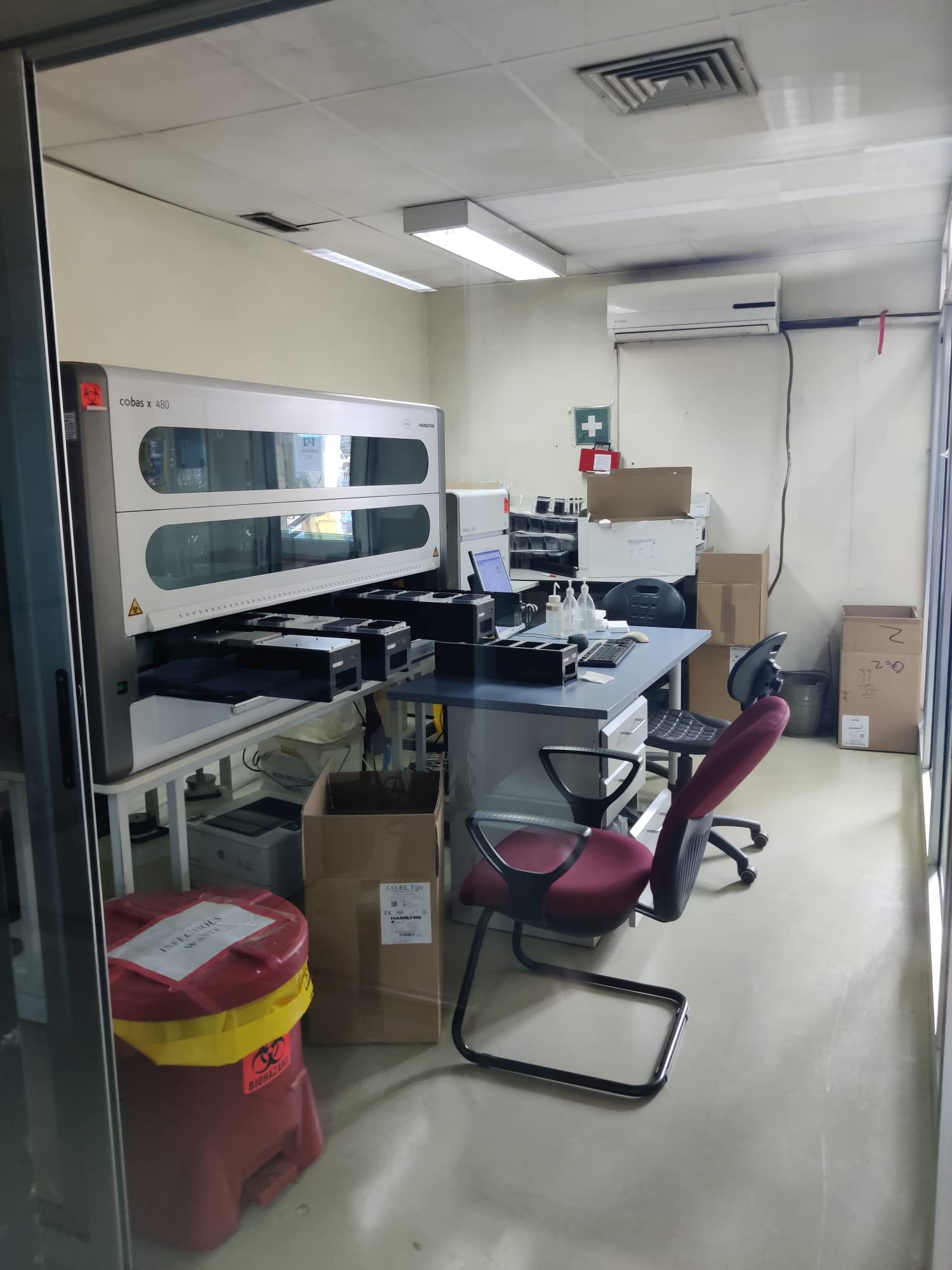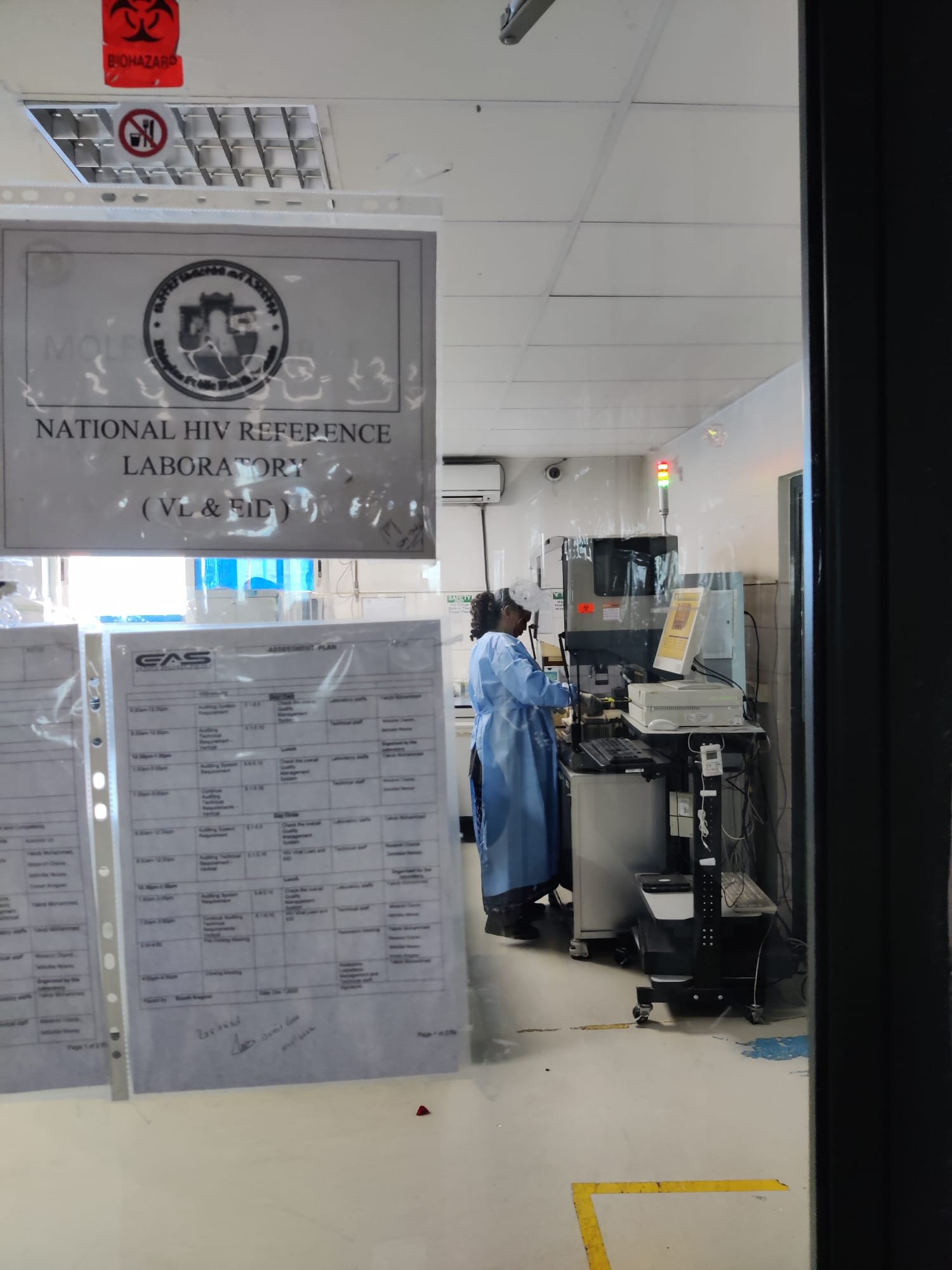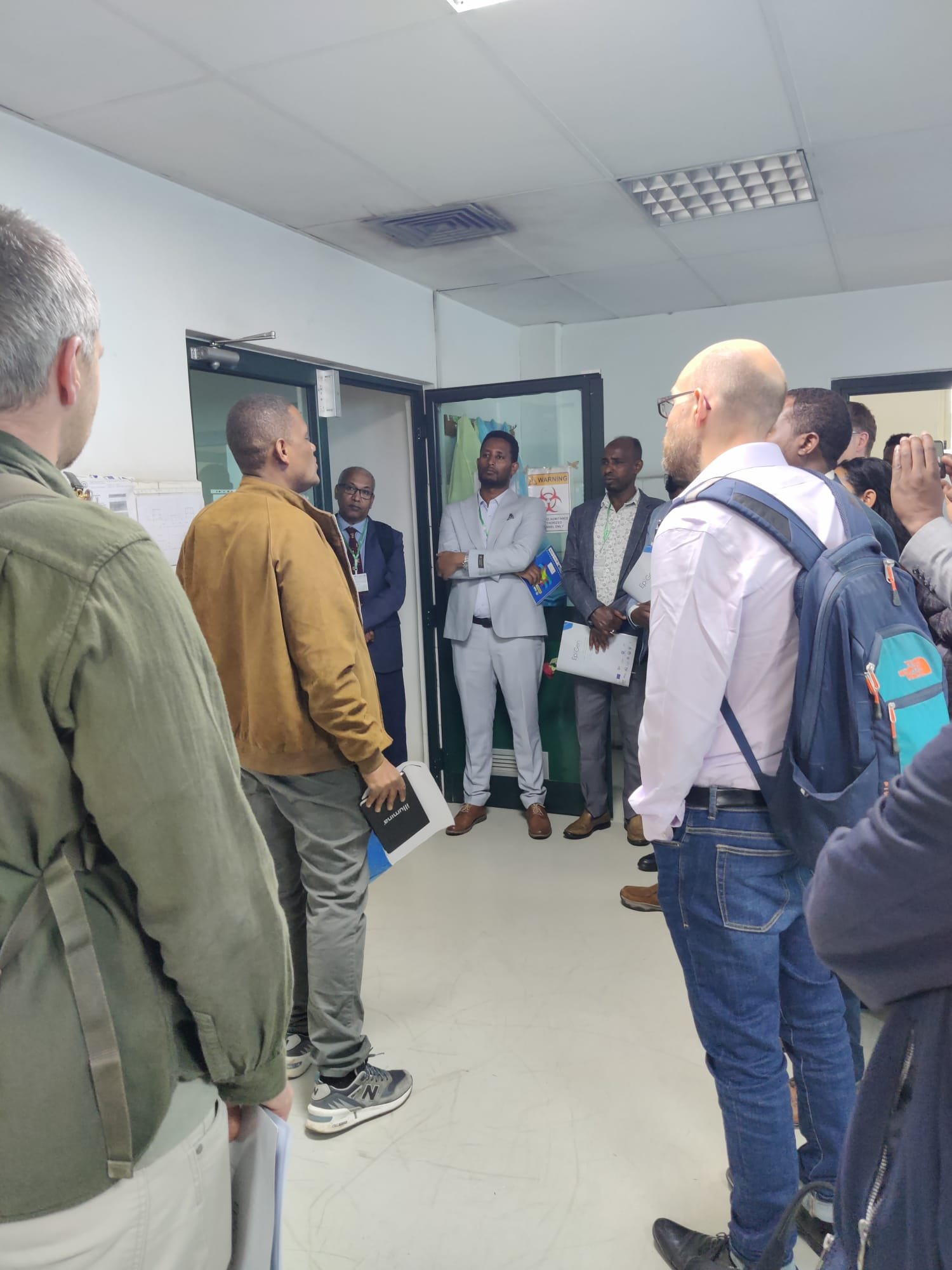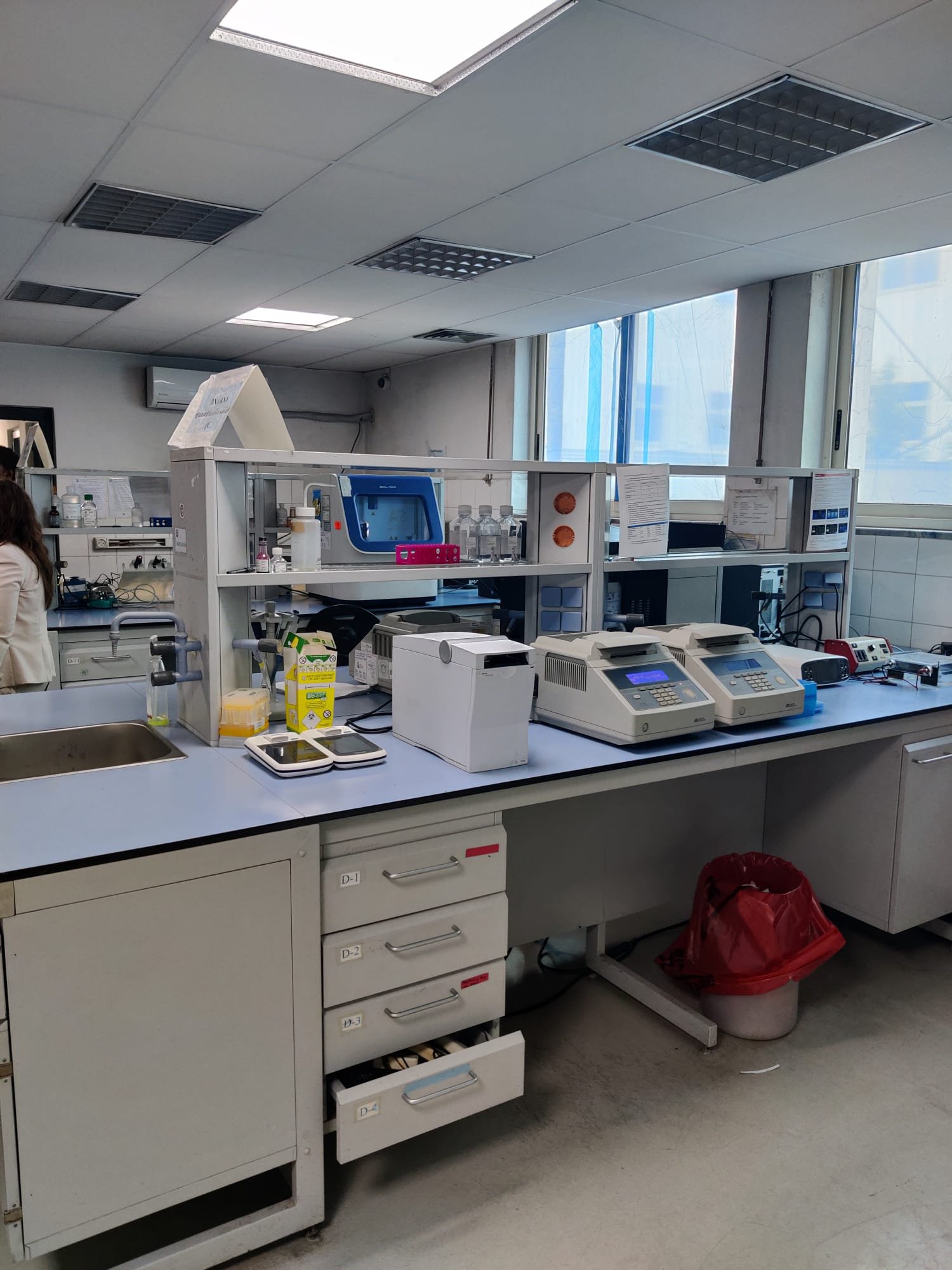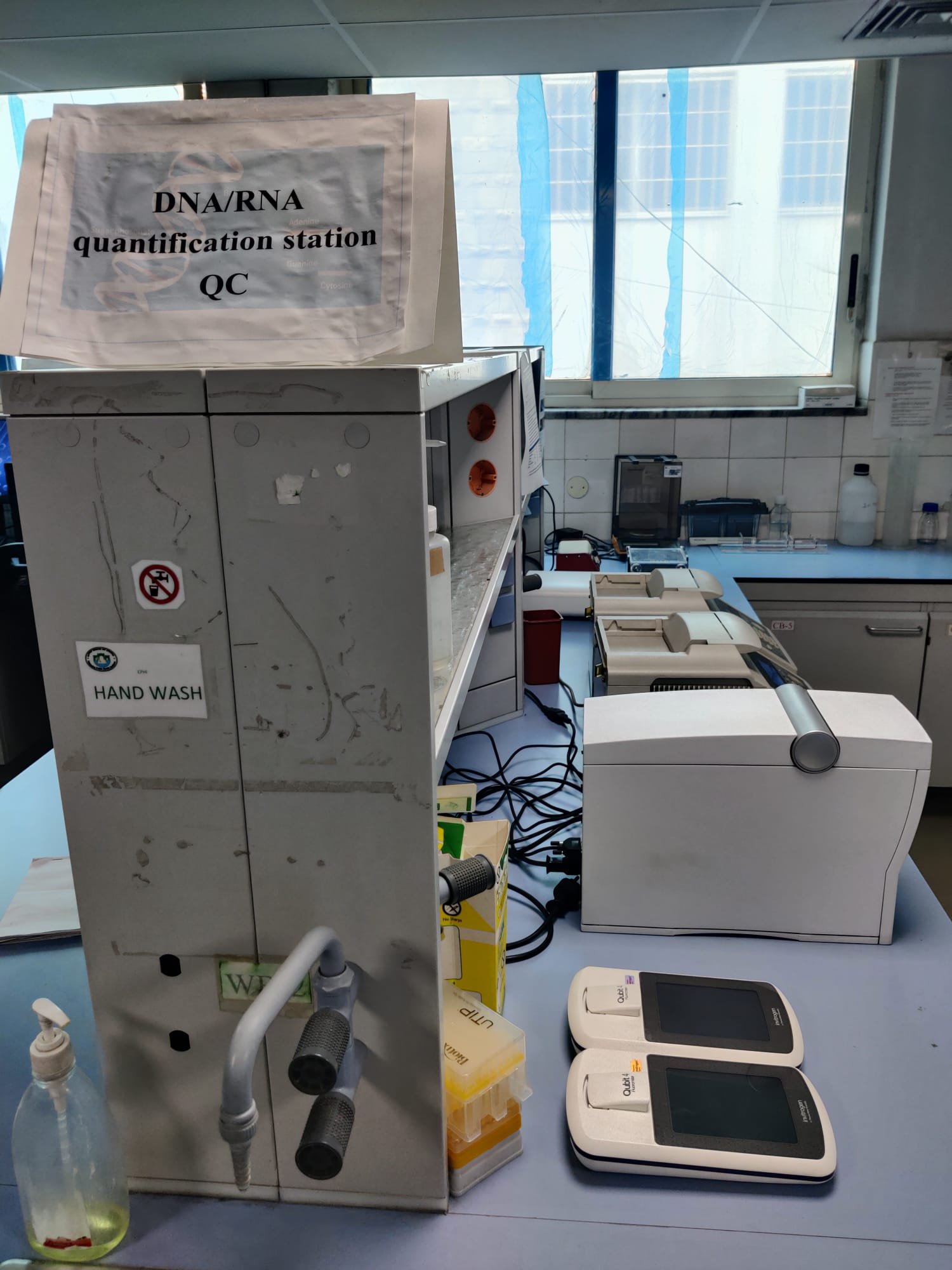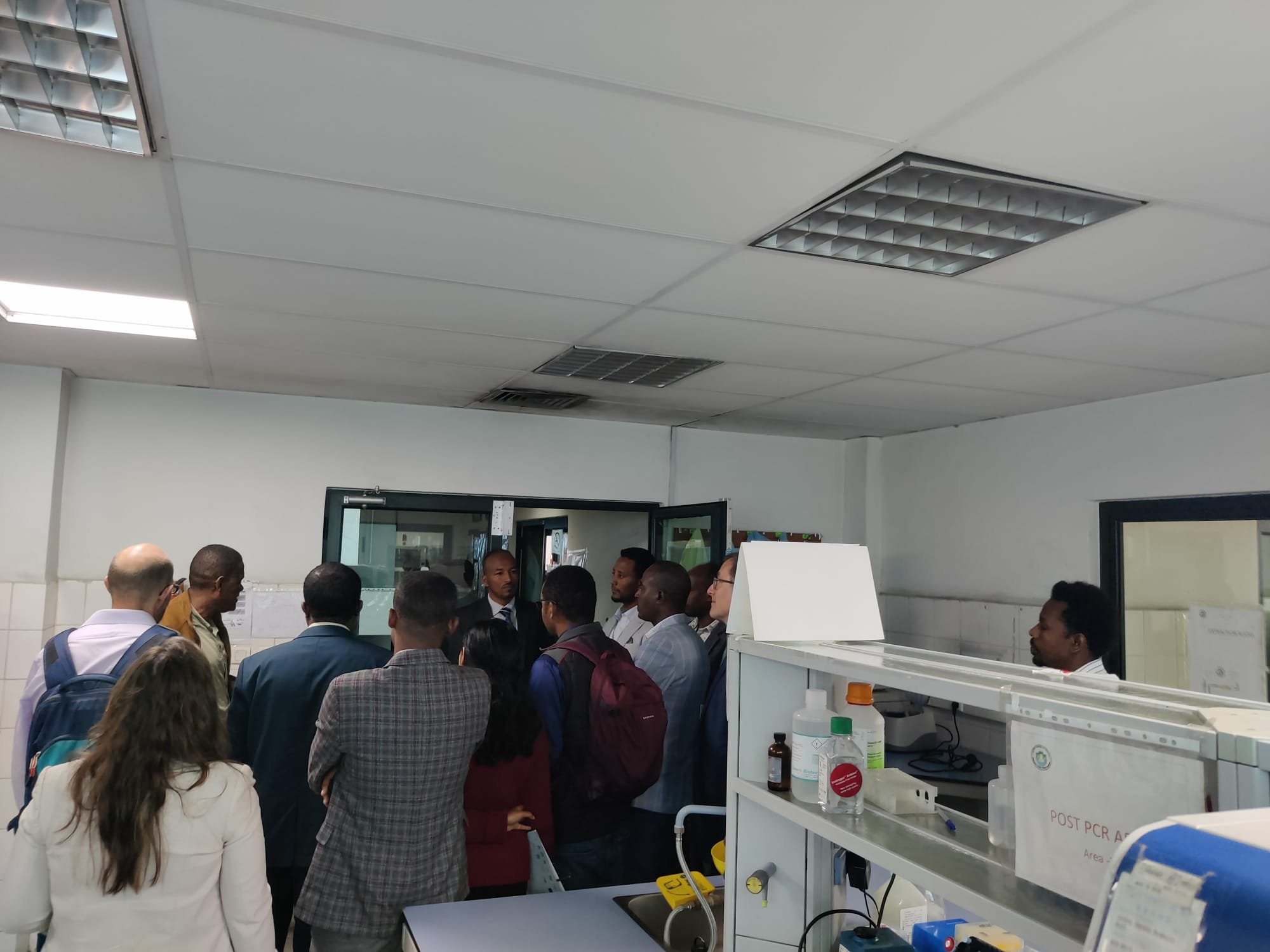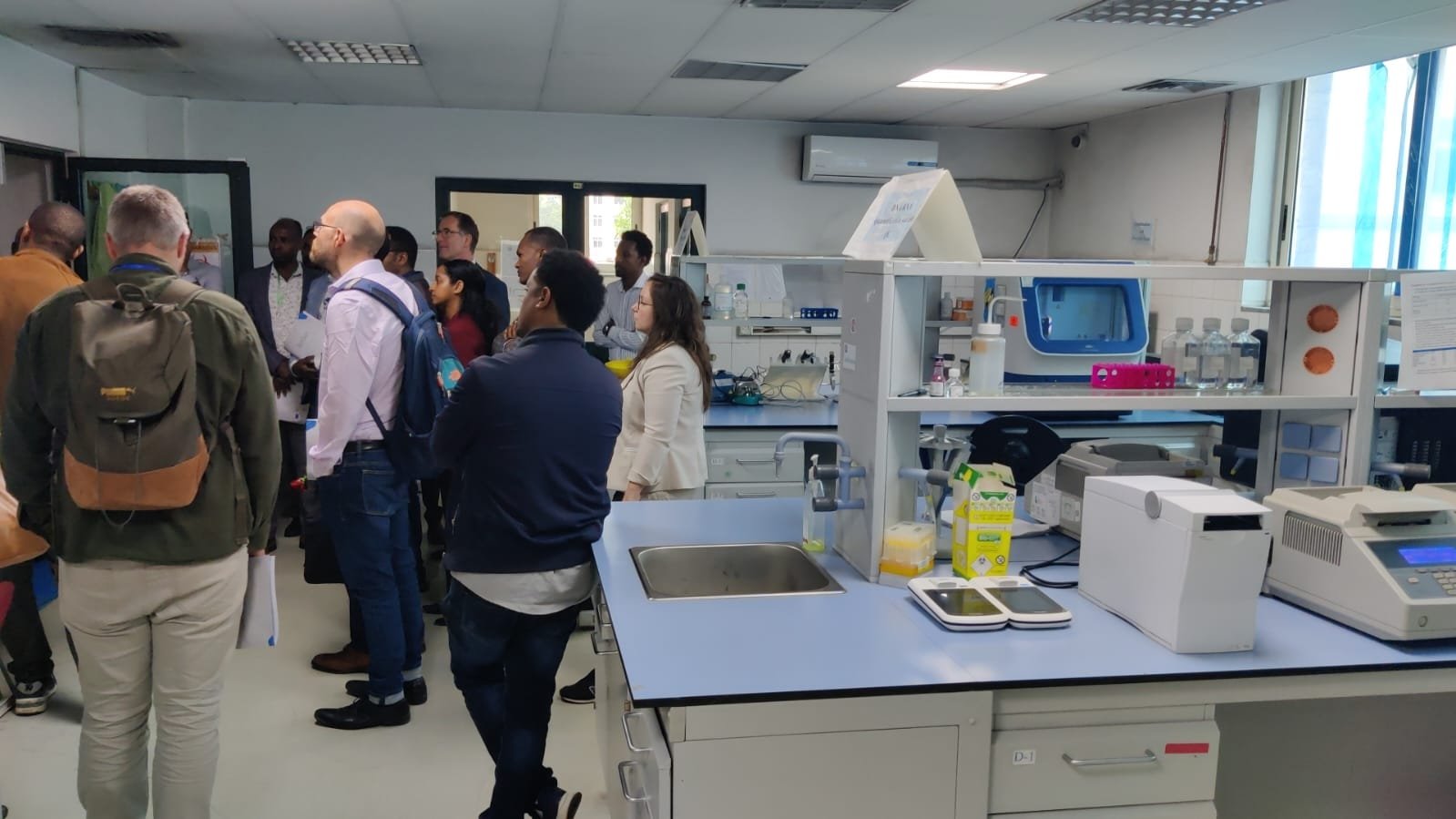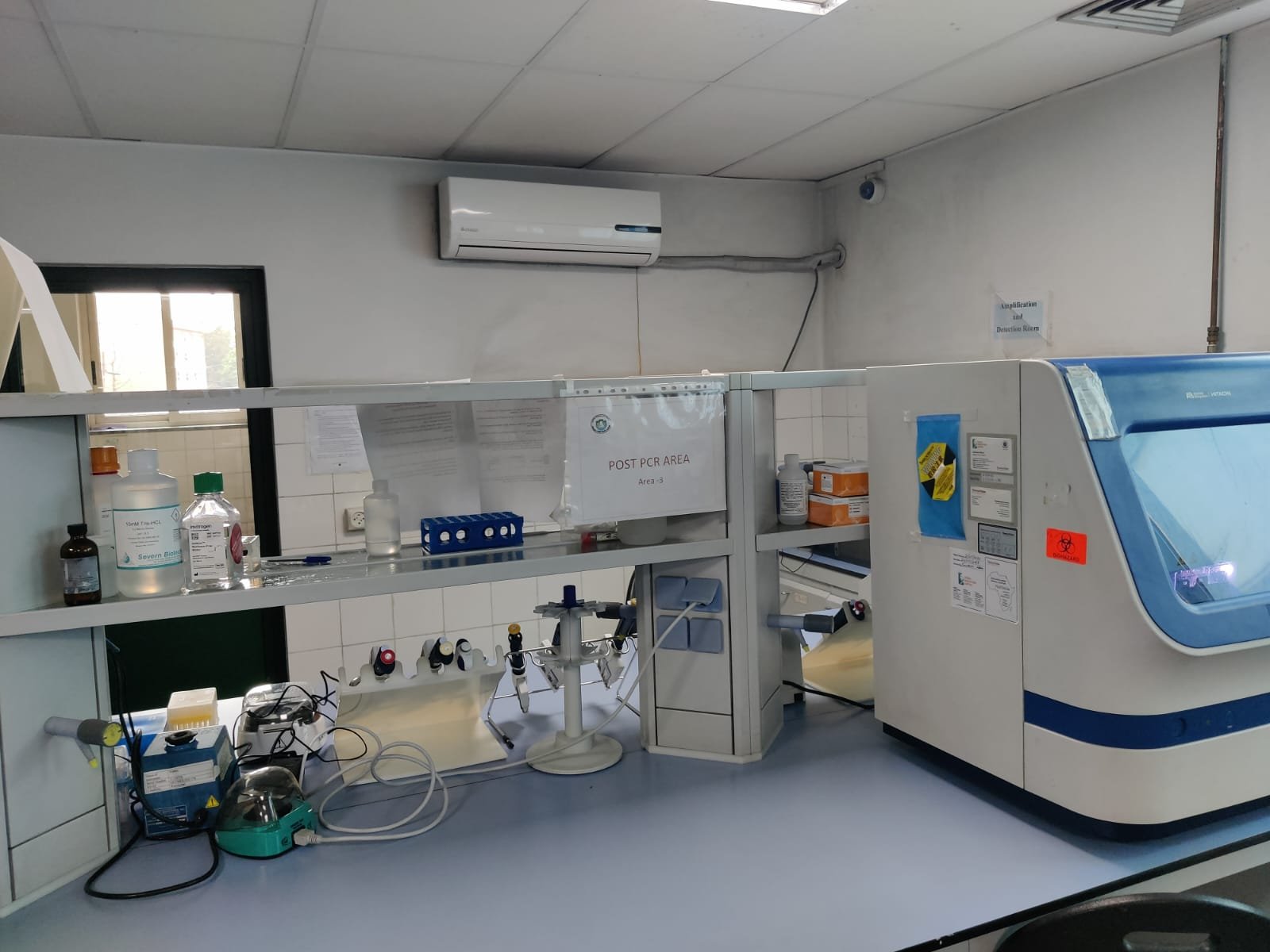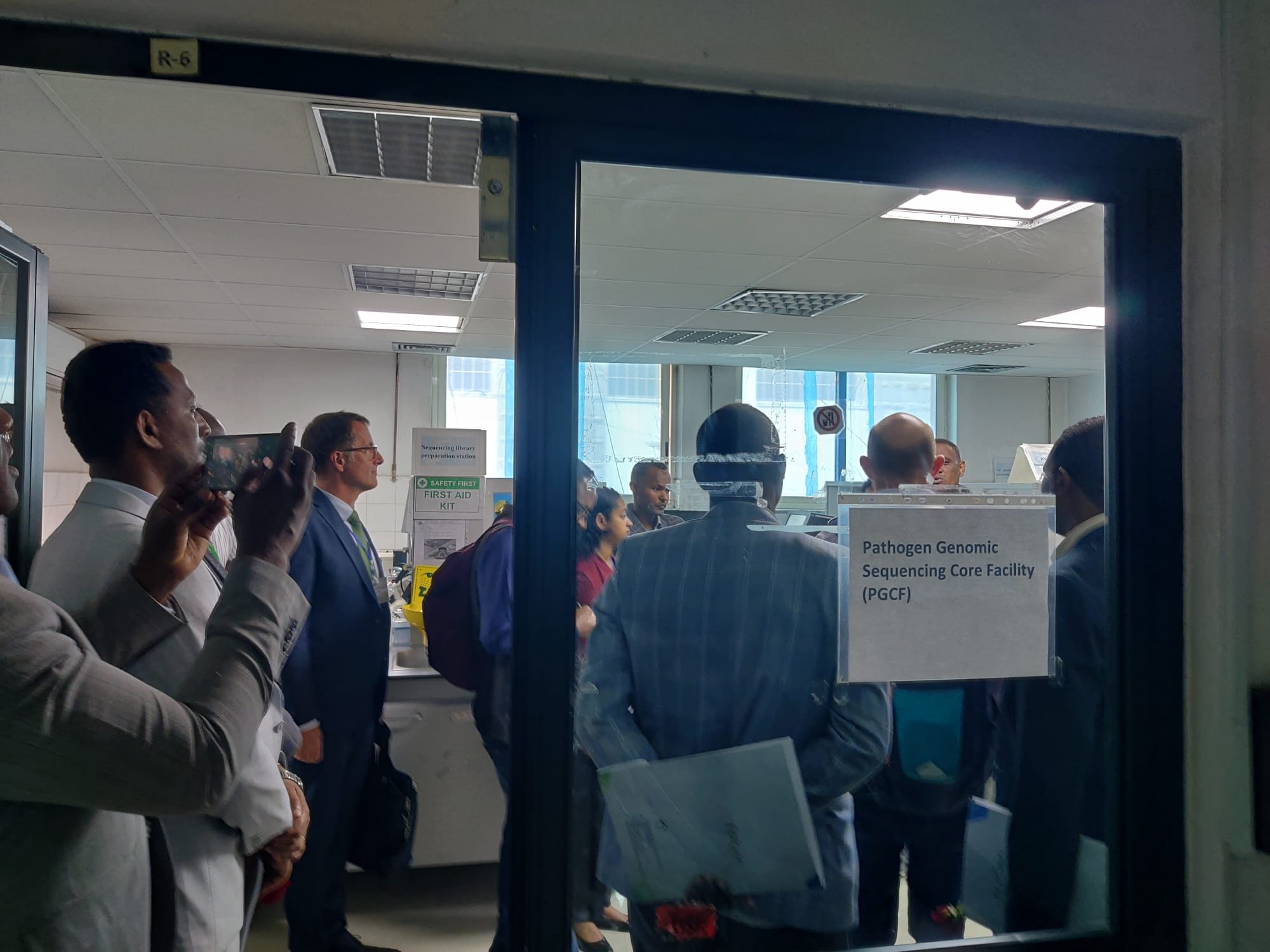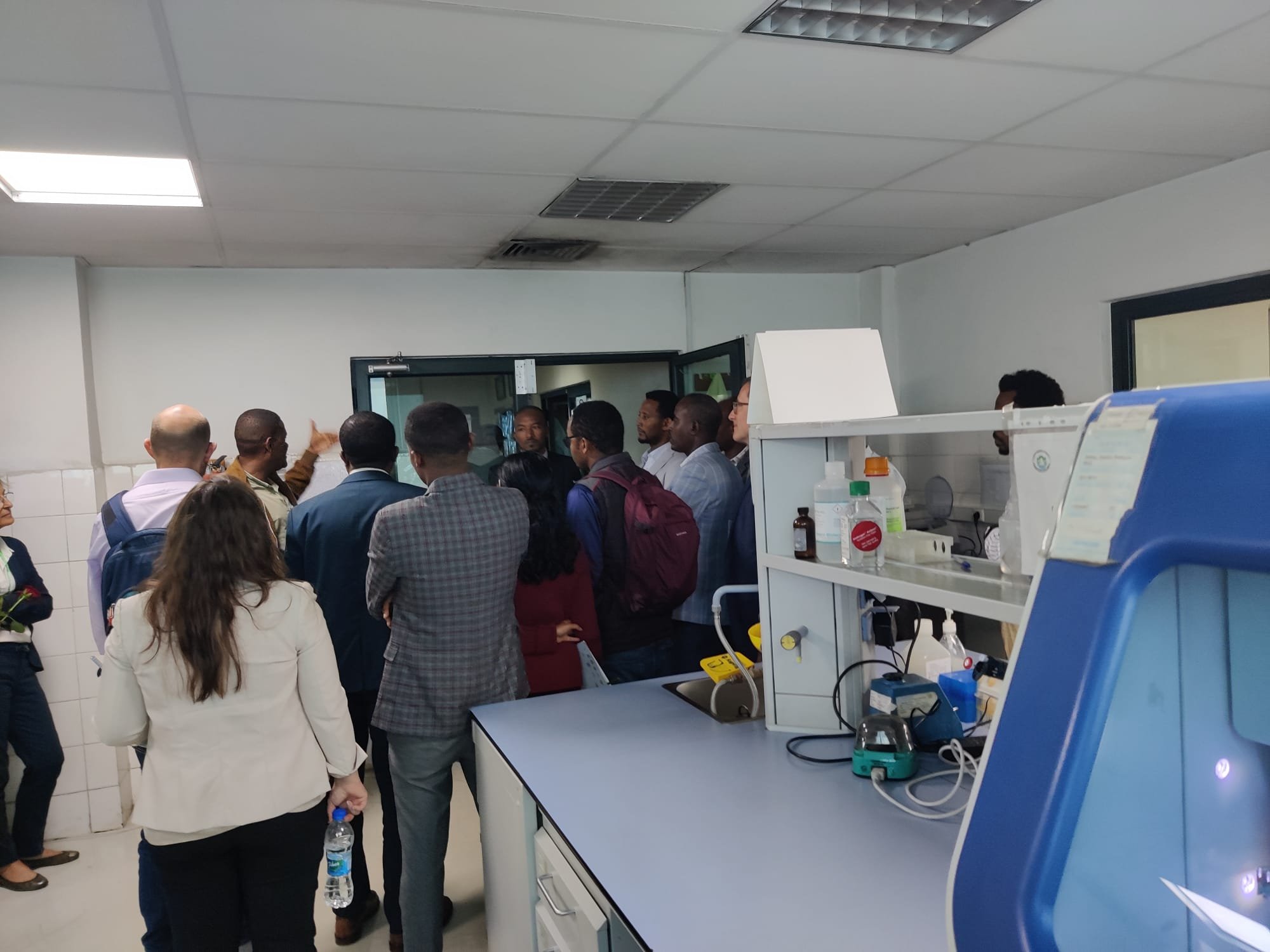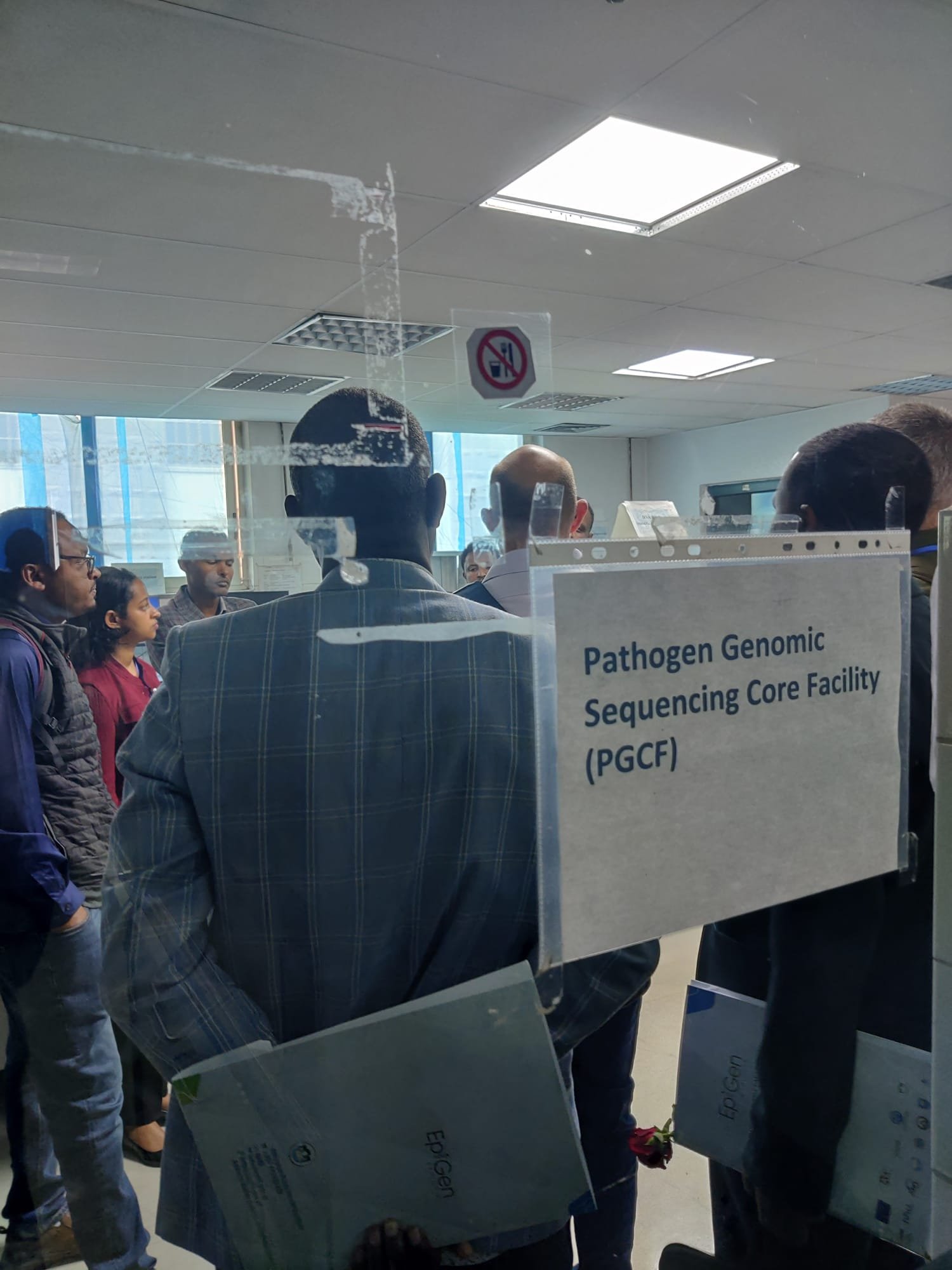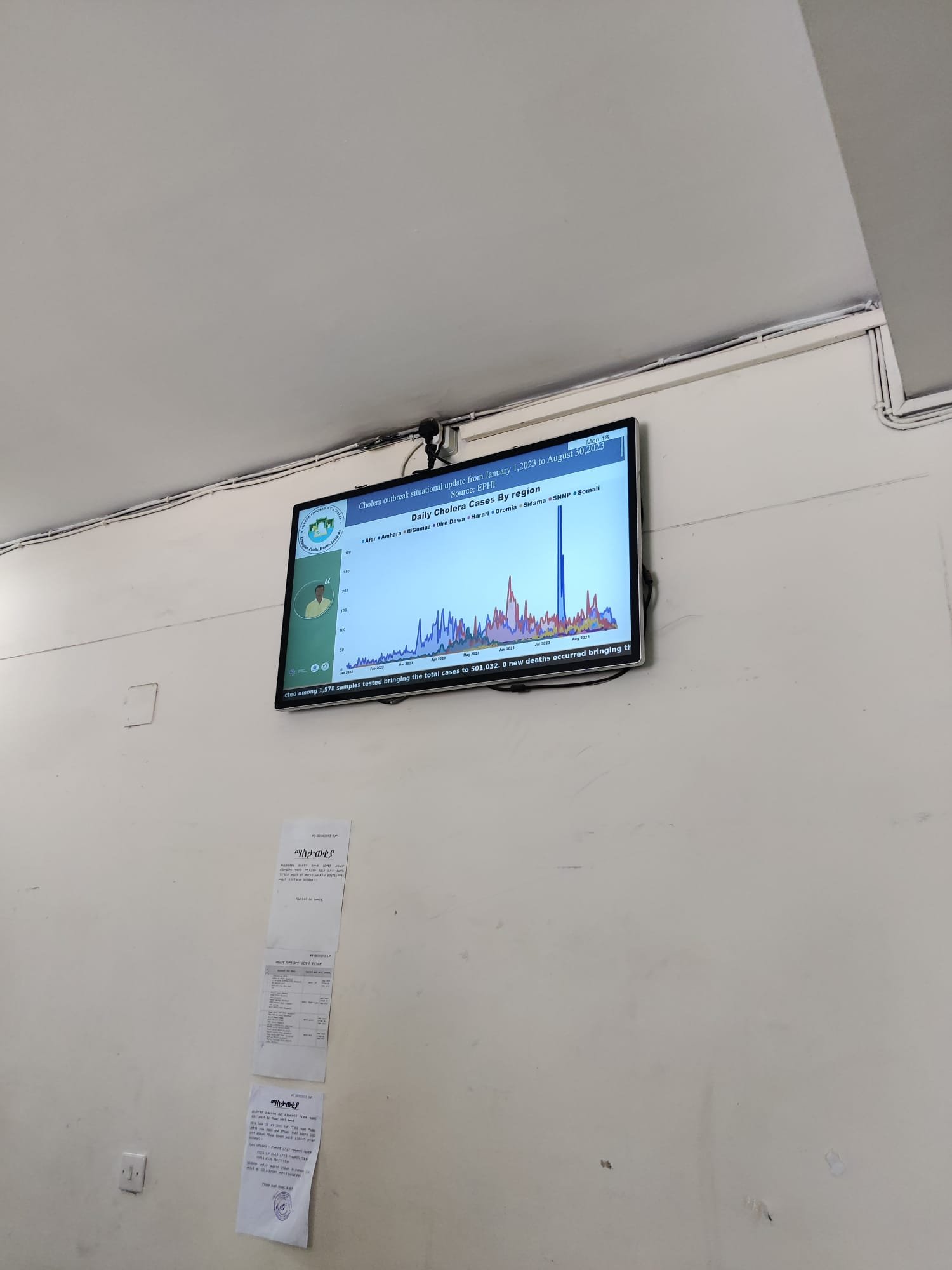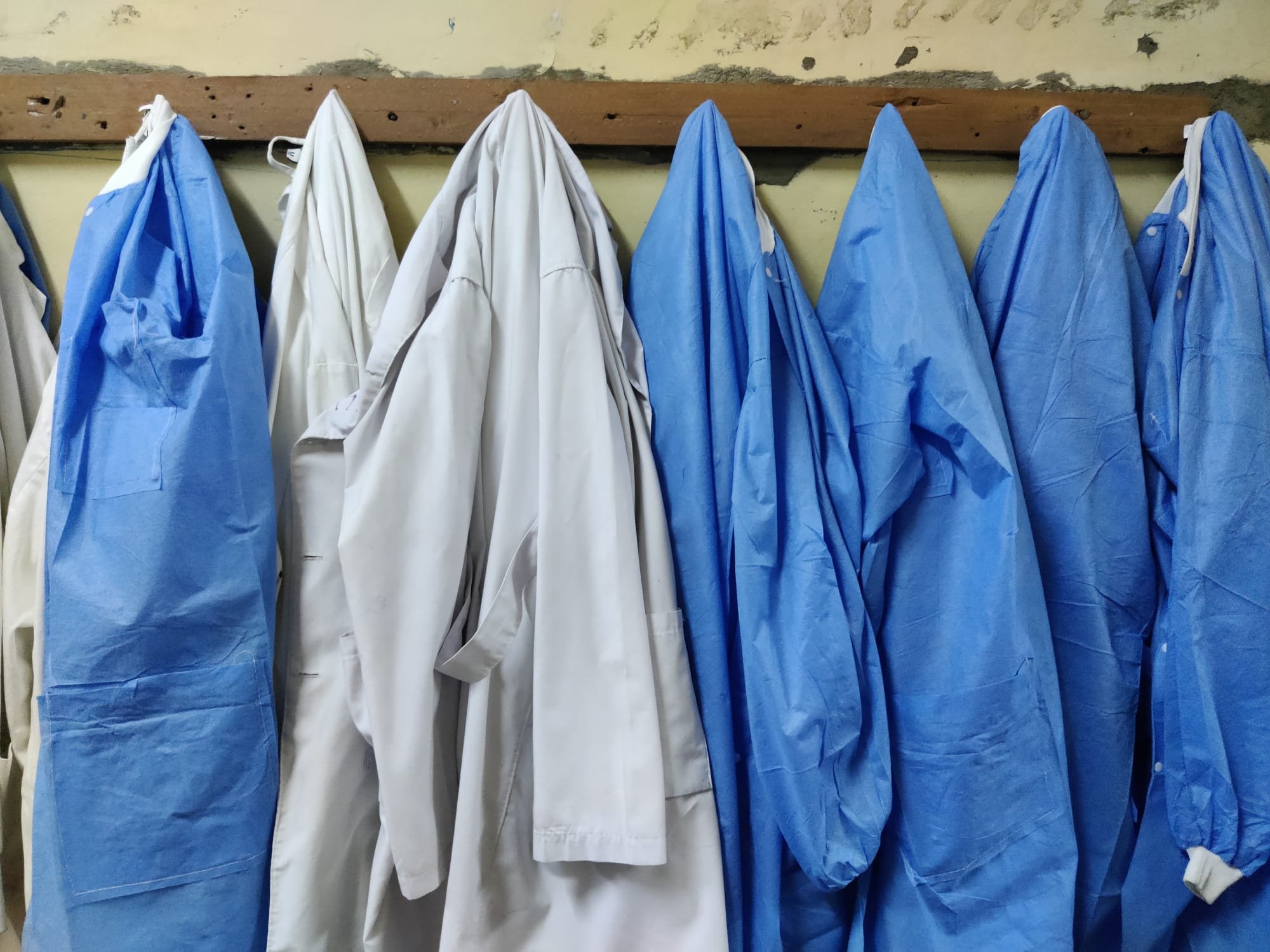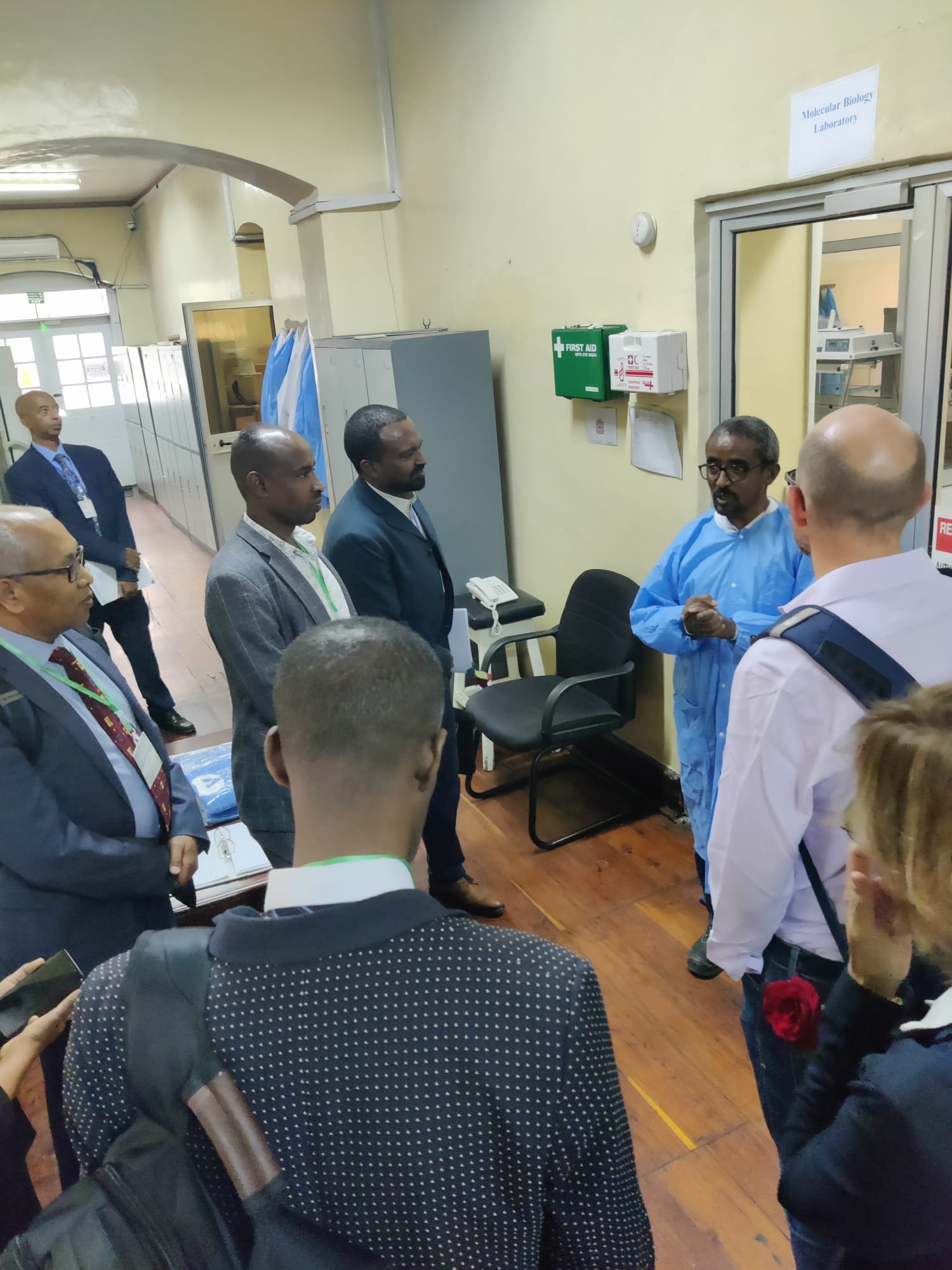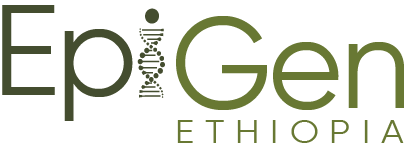Consortium Members visit labs at Ethiopian Public Health Institute
At the end of the morning on Tuesday 19 September, participants of the EpiGen Ethiopia kick-off meeting embarked on a site visit through the cutting-edge laboratories at EPHI. The visit provided a glimpse into three distinct research domains:
1. Malaria and Neglected Tropical Disease (NTDs) Lab: Inside this facility, a diverse range of micro-organisms, including neglected arboviral illnesses, various protozoan species, plasmodium strains, and soil-transmitted diseases, undergo meticulous molecular analysis. The lab boasts dedicated rooms for extraction, master-mix preparation, and detection.
2. Clinical Bacteriology and Mycology Lab: A hub for antimicrobial resistance (AMR) surveillance, this lab serves as the linchpin for eleven connected sites that transmit AMR data and representative isolates for quality control. Conventional methods, such as the collection of Cerebrospinal Fluid samples for bacterial meningitis surveillance, take centre stage here. Additionally, the lab conducts molecular testing and PCR detection for various organisms, including those responsible for Carbapenem resistance, meningitis, and sexually transmitted infections.
3. Pathogen Genomic Core Facility (PGCF): This state-of-the-art facility, equipped with cutting-edge tools like Illumina Miseq sequencers and MinION Nanopore devices, covers all facets of genomics sequencing, from sample reception to sequencing. To bolster its capabilities, a bioinformatics station is housed within the lab, complete with servers primed for the establishment of a cloud system. During the height of the COVID-19 pandemic, the PGCF played a pivotal role by testing over two thousand SARS-COV-2 samples, in addition to HIV drug resistance testing and other pathogen sequencing.
Leading this immersive session were experts Rajiha Abubeker, Atsbeha Gebreegziabxier, and Adugna Abera. The tour shed light on the innovative research and diagnostic capabilities that EPHI offers to tackle critical health challenges.
In the month before the EpiGen Ethiopia kick-off, on August 7th, the Ministry of Health in Addis Ababa has officially begun construction of a biobank and proficiency panels production center, funded by the Ethiopian government and the World Bank. The center, located at the Ethiopian Public Health Institute in the capital, is set to be operational within two years. This facility aims to enhance the quality of laboratory services in Ethiopia even further by providing standardized quality assurance services to both public and private health institutions. It will also play a crucial role in disease surveillance and the proper management of health risks, reducing the need to purchase quality samples from international companies.
